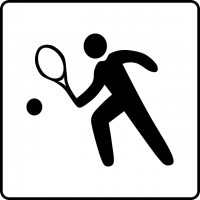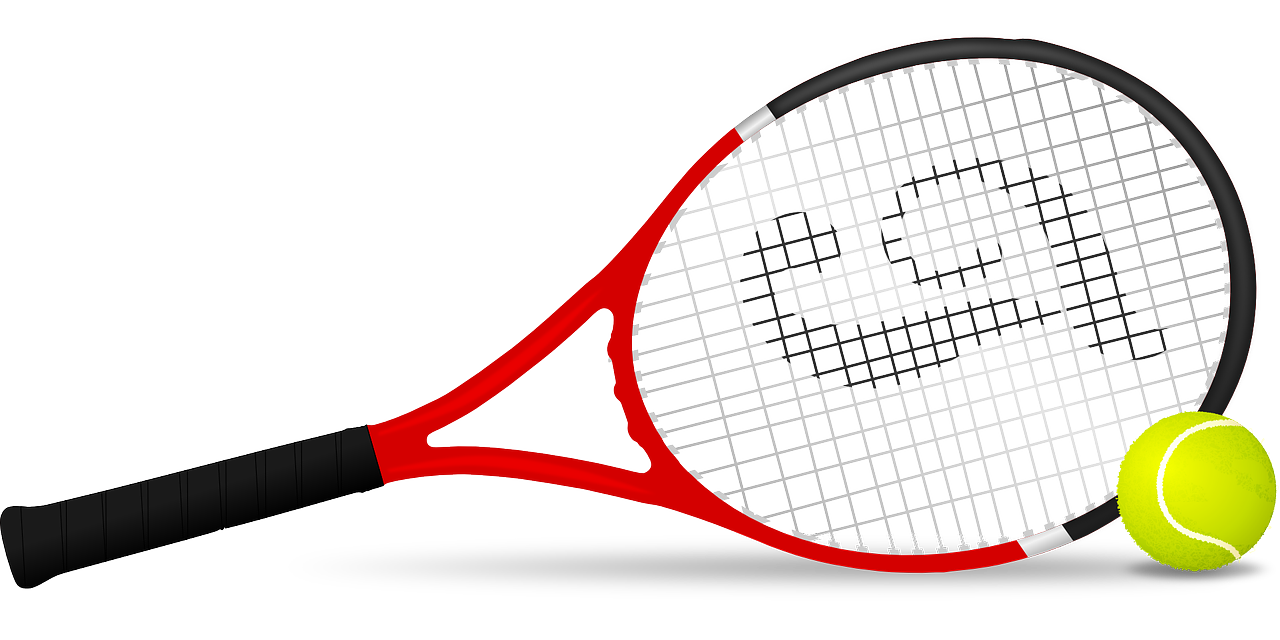In previous posts I believe I’ve mentioned that my husband and I love to play tennis. Most weeks we get to play at least three times, sometimes more. And since we’re always looking to improve our games (especially me—I’m pretty bad), we often go to a clinic for adults on Monday evenings. This week the coach decided to shift gears a little bit and work on the nitty-gritty basics of our forehands and backhands. I have to admit, it was a bit tedious, and for me frustrating at times, yet you have to pay attention to all those details in order to ultimately play better.
It’s much the same way with grammar and writing: it’s a lot of fun to spin a fanciful, creative yarn about whatever interests you, but unless you also understand and check over the grammar underpinning your writing, your reader could get confused or lost, and you will never grow and improve as a writer. You’ll probably get tired of hearing me say this, but whenever you have even the tiniest bit of doubt whether you are using a word correctly, look it up. Even if you have to every time!
Last time we covered one of those basics of good writing: words and phrases that can easily be cut or changed. Today let’s start on a series about another common stumbling block: pairs or groups of words that are often confused. There are lots of reasons why writers often mix them up, but as we’ll see, in many cases it’s because the words in question sound similar or even the same. And once again we’ll categorize these examples in order to make them easier to remember.

The first category of commonly confused words is easy to spot because one word in each pair or group contains an apostrophe: it’s/its, who’s/whose, you’re/your, and they’re/their/there. The key to untangling these is to remember the function of the apostrophe: it means that there’s something missing. In other words:
it’s = it is
who’s = who is
you’re = you are
they’re = they are
The other member of these pairs, without the apostrophe, are possessive pronouns—they show to whom or what something belongs:
its – belonging to it
whose – belonging to who
your – belonging to you
their – belonging to them
So here is a simple test you can use to make sure you have the right word. If you have the word with the apostrophe, substitute the full expression. If the sentence makes sense—hooray, it’s correct! But if not, check if the sense is that of belonging to:
It’s a great day for tennis. (Substitute the full expression) It is a great day for tennis. This makes sense, so it’s correct. But…
Please check my racquet—I think it’s grip needs to be replaced. (Substitute the full expression) *Please check my racquet—I think it is grip needs to be replaced. Oops, that doesn’t make sense. (That’s what the asterisk at the beginning of the sentence means.) So here we need the possessive form without the apostrophe its—and yes, the sentence is talking about something that belongs to it—so it should be Please check my racquet—I think its grip needs to be replaced.
This works the same way for who’s/whose and you’re/your:
This is my friend who’s on my team. = This is my friend who is on my team.
Does anyone know whose bag this is? – the speaker is asking who the bag belongs to, so no apostrophe. (It wouldn’t make sense to say *Does anyone know who is bag this is?)
You’re the best player on our team! = You are the best player on our team!
Your coach must be so proud of you. – the coach belongs to you. (It wouldn’t make sense to say *You are coach must be so proud of you.)

Things get a little trickier with they’re/their/there since there are three words involved, but let’s start with the two that work the same way as the others, they’re/their:
They’re great doubles players. = They are great doubles players.
Their record this season is five wins, one loss. – the record belongs to them. (It wouldn’t make sense to say *They are record this season is five wins, one loss.)
So far so good—but what about there? There has nothing whatsoever to do with they or them—it means only a place. You could substitute the words in that place for there to make sure your sentence is correct:
Court number 5 is there, past the locker rooms. = Court number 5 is in that place, past the locker rooms.
I hope this has helped clear up any confusion you might have had with these pairs and groups of words. Do you have any other tricks to help you check that you’re using the correct word? Please share them below!
I’ll be back next time to start delving into pairs or groups of words that sound the same but are spelled differently and have different meanings.


